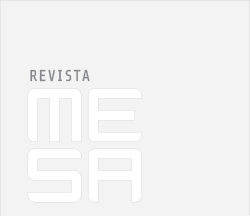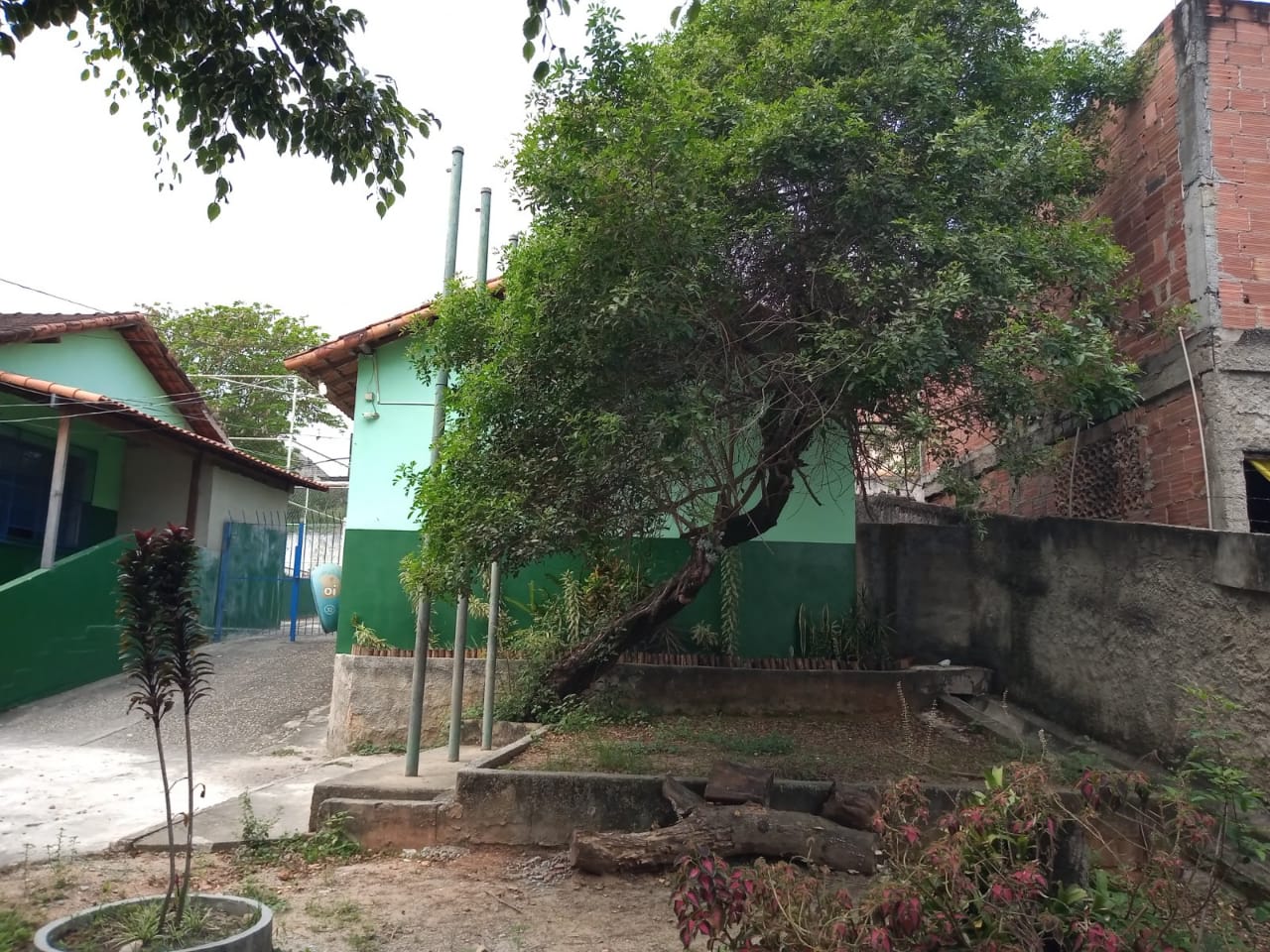
We are Tree: Writing Experiences and (De )Construction1
Raquel Danielli Mota
Our Tree
Somos [We are]. Good morning, today we are going to present our performance: Somos. In that dark room, whose sole glimmering light just revealed shadows, I was caught by surprise when I heard the word Somos. Surprise because of the daring potentiality of choosing a title, not previously agreed to during all the countless meetings of collective construction, that was so symbolic, one that captured much about the process that had led us to that moment.
And in the beginning it was all astonishment. Filled with furniture, a row of desks separating two groups – also all in a line – sharing the same space, but not glances or experiences. Readings, discussions interrupt prescribed notions, accepted opinions, the already-said – all that prevents listening. It took time; time to deconstruct, to create a democratic and horizontal space for voices to be spoken and heard, to give space to questions. Miss, you just keep putting questions in my head. Rethinking, deconstructing, reframing.
The classroom? No. They chose the tree. Our first exercise of freedom, of collective creation was this slippage of meanings between the spaces of teaching and learning. We want to go outside, we choose the tree. There, under that tree, our little green space, our resistance to the concrete that surrounds the school almost completely, was where we did our readings. Here, we immersed ourselves in the writing/experiences of [Afro-Brazilian writer] Conceição Evaristo in which, not by chance, women are present.
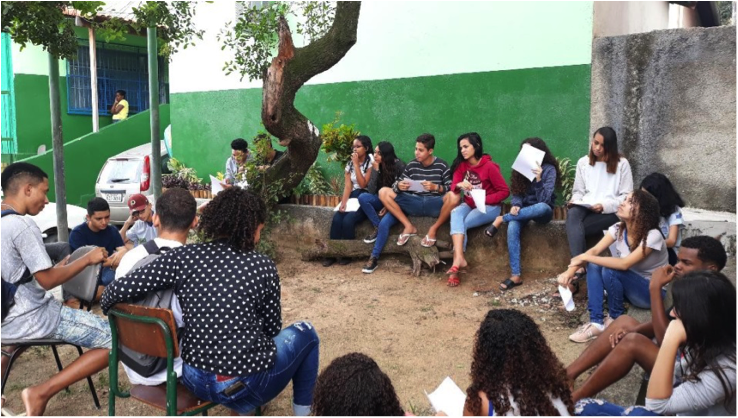
A disdainful comment, but, miss, today we’re just going to read? preceded our first reading. Silence, so how are we just going to read? Just read? Only? We continued to organize ourselves around our tree, without hindrance when looking at each other, without walls that would steal the breeze of that morning, with a floor of earth, light, freedom. Just us, our voices and our texts. Women-voices, girl-boy-voices. Silence filled with meaning. Rhythms of blood and hunger. It must be Joquei – the São Gonçalo neighborhood echoes around us. Literature affecting subjectivities differently, provoking us to listen to the text, to oneself and to the other, flowing over the subject-reader, requiring other ways of looking at oneself and the world. The curious glances of those passing by did not interrupt our process. The collective reading grew, each stanza a voice, each silence held many meanings. The literary text brought us strangeness, one that opened up possibilities, speeches, listening, and shared experiences. A whirlwind of feelings. That day, intensely, we just read.
And now? Can I speak? Adolescents want to speak. They want to be heard in addition to the content-driven answers of a traditional education model. Can I speak? Let’s go to the Conversation Circle. In these circles, words break free. Freedom, respect, listening. Ideas, affections, solidarity. It does not mean that at other times there was no space for speech, but that here was a moment dedicated to their voices. Under our tree, we got together to talk about the text being read, about the way each one had been affected by the reading, and the experience of that moment of construction.2 The text reverberates, echoes, proposals thought collectively, everything is important, what a change of paradigms! Miss, no prior planning? And the control? Students and teachers together suggesting, debating, thinking about practices, working on proposals.
What do we do with our feelings, affections, dreams, imagination? Required anonymity dissolves in the unexpected assumption of authorship. It was me that wrote it. This is mine. Trust, importance, solidarity. We weave together a support network, of respectful listening, of understanding the places of speech. What do we do with our feelings? We return to the text. New reading, another contact with the word, with the verses printed on the paper, with our affections. Women-voices that now make themselves heard in the writing of reading diaries. Women-voices-ancestral-sentiment. In Abayomi workshops, text, art, the destabilization of socially sedimented concepts and the valorization of knowledge that provokes new perspectives.3 That idea of a girl’s thing, a boy’s thing, doesn’t fit anymore.
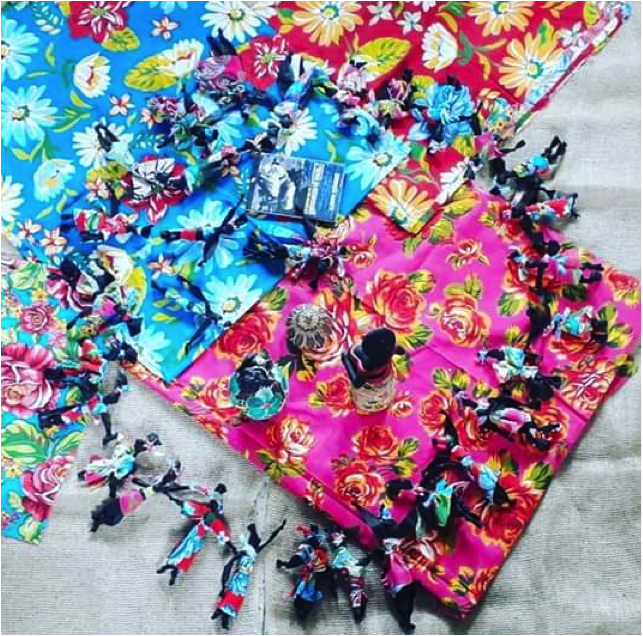
Eyes of Water. What was the color of my mother’s eyes? The question that caused us apprehension in the new reading. The tree, the circle, the text. Voices overcome by the emotion provoked by each paragraph and by the question that marked the poetic cadence of the text. After all, what was the color of my mother’s eyes? What do you mean, miss, she doesn’t remember the color of her mother’s eyes? Questions, questions, findings, identifications, empathy. Who remembers the color of their mother’s eyes? Silence. Reading. Tears, emotion, embrace. Love, affection, resilience, inspiration. Ah! the power of the literary text.
It is moving to see eyes that cry. Looking, looking at oneself, looking at the other, impacted us. In the Circle, we decided to exchange glances, the eyes of one are the mirror of the eyes of the other. Exploring other spaces, we went to occupy the school library. Sitting across from each other, looks, conversation, approach, sensitivity, connection. So much time studying in the same room and I never noticed his eyes. It took time and thought provocation, problematization, self-learning, through reading the literary text, to understand that we are desiring subjectivities.
With the end of the project approaching, we started to think about ways to represent the path taken. A performance? Miss, I don’t want to be in it, no. Let them see our shadows in a performance, a shadow theater. Production of a collective text, poster, script, papers, scenery, materials, students in process, supporting teacher. Rehearse, rehearse, rehearse. Miss, he’s not taking it seriously, I’ll cut him out of the piece. Calm down. Someone suggests a song framing the reading during the presentation. Conversation. Pause for the reading, Of Calm and Silence. We decided to end the presentation with poetry.
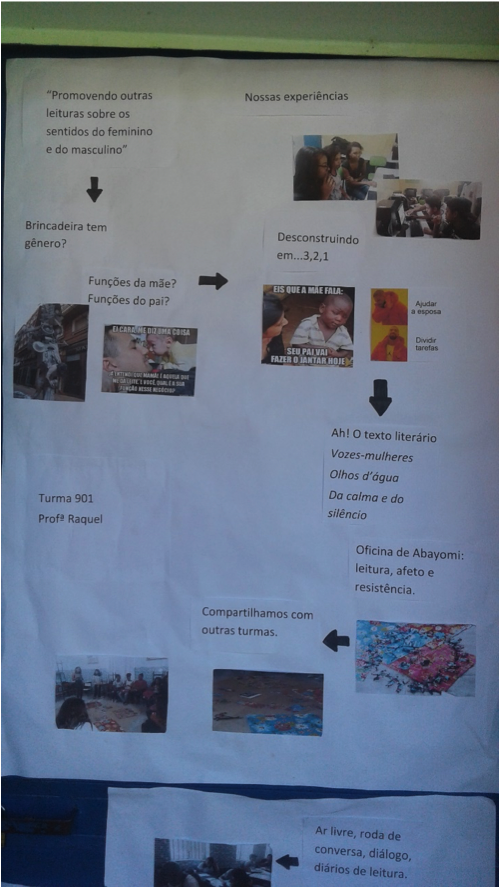
Somos. Good morning, today we are going to present our performance. Somos. In that dark room, whose sole glimmering light just revealed shadows, I was caught by surprise when I heard the word Somos. Only then did I realize that we had not thought of a name for the performance, that they had organized themselves, arranged the space, and decided that it would be called Somos. The path of this stigmatized class that “wants nothing”, from disconnection to the belonging constructed through Somos, crossed my mind. I realized that that the class that wanted nothing just wanted other things.
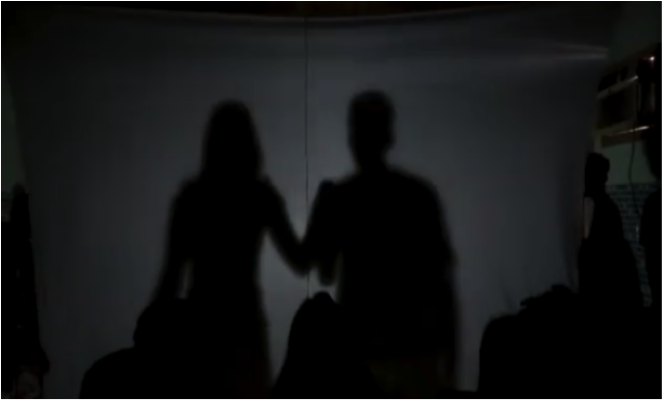
***
Raquel Danielli Mota
Has been teaching classes in Portuguese and English literature in the state of Rio de Janeiro since 2007. She has a Master of Arts from the State University of Rio de Janeiro (UERJ) and a Bachelor Degree in Literature from the Federal University of Rio de Janeiro (UFRJ). She is a member of the research group NELID – Nucleus of Studies in Language and Discourse.
1 Text based on my professional master’s dissertation (Pofletras, UERJ), developed with students from 9th grade at the Colégio Estadual Professora Odysséa Silveira de Siqueira, São Gonçalo, Rio de Janeiro, Brazil.
MOTA, Raquel Danielli. A análise de discurso em sala de aula: promovendo outras leituras sobre os sentidos do masculino e do feminino / Raquel Danielli Mota. – 2020. 300f.: il.
2 I used the word affected here in the sense of opening up the capacity to be affected by the other, by the text. Deleuze (Spinoza: Practical Philosophy, San Francisco: City Lights, 1988, p.p 48-49) affirms that affectio (affections) refers to the state of the affected body and implies the presence of the affecting body, whereas affectus (affect) refers to the passage from one state to another, taking into account the correlative variation of the affecting bodies.
3 We organized an indigenous Abayomi doll-making workshop in which we ialso nterpreted possible narratives of the origins of the dolls.

